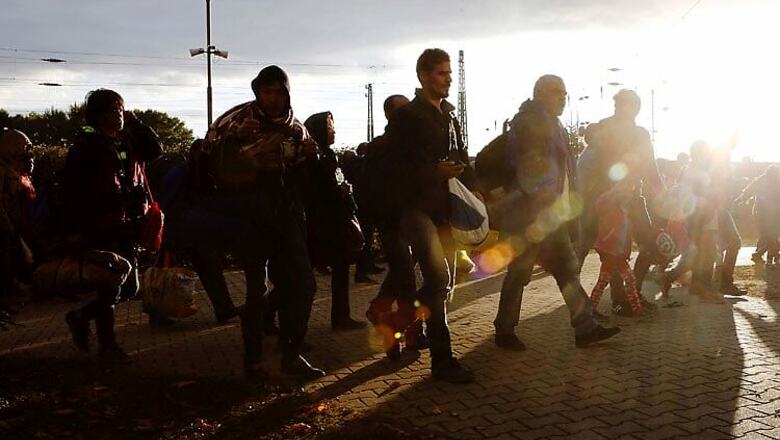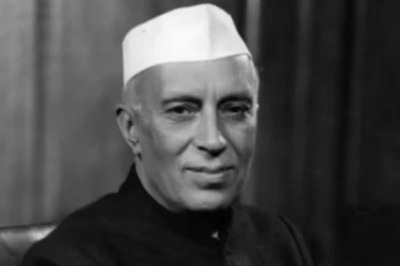
views
Along with the Greek Economic Crisis and the United Kingsom's decision to hold a referendum regarding its European Union (EU) membership, the EU is now faced with another major challenge - the influx of refugees. Like the economic crisis, the refugee crisis has shown its ability to split the EU right down the middle. There is a clear divide emerging between the nation's of Eastern European on one-hand and those of Western Europe on the other. It is important to note that a vast majority of the refugees are coming from the Middle East (Syria and Iraq) and Sub-Saharan Africa. The question that the EUin particular and the International community in general, is grappling with is, how and where to accommodate these refugees? Do the European nations have a moral obligation to accommodate these refugees?
Civilians are increasingly being caught in the crossfire in several internal conflicts across the world. In the final stages of the battle against the LTTE, large numbers of civilians in the north of Sri Lanka were displaced. Similarly, numerous Palestinian refugees have found themselves stuck in camps in Jordan, Lebanon and other parts of the Middle East. Unfortunately, the ongoing conflicts in Syria and Iraq have resulted in a large number of internally displaced people. With so many of these internally displaced persons deciding to seek permanent asylum in Europe, it forces attention on the question of the moral obligations concerning the accommodation of refugees.
International law clearly draws the line on what are the responsibilities of the international community when it comes to refugees. The Refugee Convention of 1951, which has been ratified by all the current EU member, states that the international community has a moral obligation to ensure that the refugee seekers are not forced to return to original home where their rights are threatened. The principle of non-refoulement, prevents a state from forcibly sending refugees back to a situation where their rights are endangered. This means that the EU would be morally erroneous to refute entry to genuine asylum seekers. International law pertaining to refugees does place a moral duty on the international community to ensure the safety of refugees.
Apart from international law, history also points out that the European nations have a special moral obligation to accommodate these refugees. Before that First World War, almost all of today's Arab World was under the Ottoman Empire. It was during the First World War that the powers of the Triple Entente (mainly France and Britain) gained Arab support against the Turks, in exchange for independence. The fact of the matter is that the 1917 Sykes-Picot Agreement carved up the Arab region between Britain and France. The current national boundaries that we see in the Middle East, are the boundaries drawn up by the Sykes-Picot Agreement. The national borders in the Middle East today have little consideration for historical, cultural and ethnic differences as Britain and France draw them up hastily. These artificial borders are a key source of the conflict that drives refugees to seek shelter in the EU today. With this historical perspective the moral duty and burden that EU has is very clear. From a historical point of view, the EU countries, which have to take a lot of the blame for creating the trouble, have a moral obligation to protect these refugees.
The debate over the moral responsibility to accommodate the refugees opens up a much broader debate surrounding colonization. This debate also echoes what Shashi Taroor the senior Congress leade, said in his oration in the UK, that former colonial masters owe to the former colonies reparations for the economic damages it caused. The debate surrounding this topic is bound to carry on for a long time to come. However, unlike the case of reparations for economic damages, the refugee crisis is far more pressing and urgent. International refugee laws and more importantly a greater historical burden mean that the EU has a moral obligation to accommodate these refugees.
(Sanjal has just completed his Masters in International Relations at the London School of Economics and Politics and is currently doing a United Nations internship in Chile.)




















Comments
0 comment